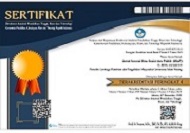Strategi Penerapan Kebijakan Sovereign Wealth Funds (SWFs) di Indonesia: Studi Literatur dan Studi Komparatif Oman
DOI:
https://doi.org/10.33474/jisop.v3i1.6959Keywords:
Sovereign Wealth Funds (SWFs), Economic Policy, Comparative StudiesAbstract
The application of Sovereign Wealth Funds (SWFs) in monetary policy is a solution to the counter-globalist policies that have so far prevented developing countries from being able to move into developed countries. The State of Oman is an inspiration for the kingdom of Saudi Arabia in the policy of Sovereign Wealth Funds (SWFs) which change the direction of state policy on hospitality services for pilgrims Umroh and Hajj. The oman state also has been a country that focuses its main income on petroleum to calculate all its petroleum assets which are then sold in the form of Sovereign Wealth Funds (SWFs) to change the country's policy on tourism hospitality activities. This research will explain SWFs in terms of definition, history and concept, then we will see the application of SWFs in oman countries that have been going on since 2010. The implementation strategy of SWFs in Indonesia certainly requires courage from the Indonesian government because the presence of rare mineral content in this country is certainly very needed for high-tech materials in developed countries in the world. Indonesia is very likely to implement SWFs and can become developed countries with a model of applying SWFs on rare earth minerals owned by Indonesia, which are entirely in this country.
References
Al-Saidi, M. (2012). Analytical study of sovereign wealth fund’s strategies and policies: A case study of Oman sovereign wealth fund [Brunel University Brunel Business School PhD Theses]. https://bura.brunel.ac.uk/handle/2438/6494
Arikunto, S. (2010). Metode Peneltian. Jakarta: Rineka Cipta.
Bernstein, S., Lerner, J., & Schoar, A. (2013). The investment strategies of sovereign wealth funds. Journal of Economic Perspectives, 27(2), 219–238. https://doi.org/10.1257/jep.27.2.219
Devlin, J., & Titman, S. (2004). Managing oil price risk in developing countries. The World Bank Research Observer, 19(1), 119–139. https://www.jstor.org/stable/3986495?seq=1
Dewenter, K. L., Han, X., & Malatesta, P. H. (2010). Firm values and sovereign wealth fund investments. Journal of Financial Economics, 98(2), 256–278. https://doi.org/10.1016/j.jfineco.2010.05.006
Djuwita, P. (2014). Penelitian KOmparatif [FKIP Universitas Bengkulu]. In FKIP Universitas Bengkulu,. http://pgsdberbagi.blogspot.co.id/2014/01/penelitian-komparatif.html
Eisenhardt, K. M. (1989). Making fast strategic decisions in high-velocity environments. Academy of Management Journal, 32(3), 543–576. https://doi.org/10.2307/256434
Fitrah, M. (2018). Metodologi penelitian: penelitian kualitatif, tindakan kelas & studi kasus. CV Jejak (Jejak Publisher).
Ju, X.-T., Xing, G.-X., Chen, X.-P., Zhang, S.-L., Zhang, L.-J., Liu, X.-J., Cui, Z.-L., Yin, B., Christie, P., & Zhu, Z.-L. (2009). Reducing environmental risk by improving N management in intensive Chinese agricultural systems. Proceedings of the National Academy of Sciences, 106(9), 3041–3046. https://doi.org/10.1073/pnas.0813417106
Kotter, J., & Lel, U. (2011). Friends or foes? Target selection decisions of sovereign wealth funds and their consequences. Journal of Financial Economics, 101(2), 360–381. https://doi.org/10.1016/j.jfineco.2011.03.007
Krippendorff, K. (1993). Major metaphors of communication and some constructivist reflections on their use. Cybernetics & Human Knowing, 2(1), 3–25. https://repository.upenn.edu/asc_papers/84/
Kuhlthau, K. A., Bloom, S., Van Cleave, J., Knapp, A. A., Romm, D., Klatka, K., Homer, C. J., Newacheck, P. W., & Perrin, J. M. (2011). Evidence for family-centered care for children with special health care needs: a systematic review. Academic Pediatrics, 11(2), 136–143. https://doi.org/10.1016/j.acap.2010.12.014
Mahajan, A., Bhagat, R. M., & Gupta, R. D. (2008). Integrated nutrient management in sustainable rice-wheat cropping system for food security in India. SAARC Journal of Agriculture, 6(2), 29–32.
Neuman, S. B., & Celano, D. (2006). The knowledge gap: Implications of leveling the playing field for lowâ€income and middleâ€income children. Reading Research Quarterly, 41(2), 176–201. https://doi.org/10.1598/RRQ.41.2.2
Sutanto, R. (2005). Dasar-Dasar Ilmu Tanah, Konsep dan Kenyataan. Kanisius.
Swensen, D. F. (2009). Pioneering portfolio management: An unconventional approach to institutional investment, fully revised and updated. Simon and Schuster.
The Report: Oman 2009. (2000). Oxford Business Group.
Timotius, K. H. (2017). Pengantar Metodologi Penelitian: Pendekatan Manajemen Pengetahuan untuk Perkembangan Pengetahuan. Penerbit Andi.
Downloads
Published
How to Cite
Issue
Section
License
.


_-_Copy.jpg)





